Collective efforts are key to fight against plastic waste
Vietnam can effectively tackle the issue of plastic waste by participating in international agreements and encouraging the involvement of various stakeholders.
Developing a legally binding agreement on plastic pollution all over the world, coupled with multi-stakeholder engagement, will be critical to addressing the plastic waste crisis in Vietnam and around the world.
| Melissa Bishop, Chargé d'Affaires, the US Mission to Vietnam, speaks at the event held on April 22. Photos: Hoang Nam/The Hanoi Times |
The idea was shared by Melissa Bishop, Chargé d'Affaires, the US Mission to Vietnam, at an event held at the American Center to celebrate Earth Day (April 22).
March 2022 marked a historic moment in international efforts against plastic pollution when the United Nations Environment Assembly (UNEA) adopted the Resolution “End plastic pollution: Towards an international legally binding instrument” signed by 175 countries, including Vietnam and the United States.
The US diplomat said the move reflects “the monumental progress that has been made on the global stage and “a major step forward in our collective efforts to reduce greenhouse gas emissions from plastic production, use, and disposal.”
| Chargé d'Affaires Melissa Bishop signs to contribute to a greener planet. |
“It requires every one of us to do our part. We can all make a difference by reducing our use of single-use plastics and recycling the plastics we use. Every small action adds up to make a big impact,” Melissa Bishop emphasized.
She believed plastic pollution is a complex issue that needs a multi-faceted approach. It requires governments, industry, experts, organizations, and communities to work together towards a common goal. In this common drive, she highlighted the role of civil society, whose tireless efforts and innovative solutions have made a significant contribution.
| Participants at the event support Earth Day. |
At the national level, Vietnam’s Ministry of Natural Resources and Environment has shown great commitment to promoting a circular economy through extended producer responsibility regulations. In this regard, American businesses like Unilever, Dow, Coca-Cola, and Pepsi are leading the way in sustainability and reducing plastic pollution.
According to her, plastic pollution is growing in Vietnam and probably in the United States, but initiatives like action against plastic pollution and reducing pollution projects supported by the United States through the US Agency for International Development (USAID) will make an incredible difference.
But perhaps most importantly, it is the way towards a greener, more sustainable future for Vietnam and the world. “Your passion, creativity, and determination are the greatest assets in this fight right now, and how you can contribute to building a brighter, cleaner future for our planet. Together, we can make a difference.”
| The event draws a large number of young people. |
The event aims to encourage young audiences to adopt sustainable practices to help tackle Vietnam's plastic waste crisis.
Youth activities at the event were contributed by Let’s Do It! Hanoi, with plastic bottle recycling activities, VunArt with fabric recycling activities, and the Wilson Center Plastic Pipeline Game.
The event featured an insightful panel discussion on plastic pollution in Vietnam and actionable ways to combat it. American companies demonstrate their dedication to environmental preservation and sustainability through their initiatives to minimize plastic waste and recycling activities organized by local environmental champions.
| Panelists at the event, from left: Dang Nguyet Anh, Trinh Thai Ha, Le Thi Hong Nhi, Bui Ngoc Diep, and Tran Thi Hoa. |
Among the panelists was Dang Nguyet Anh, Project Manager of the National Plastic Action Partnership (NPAP), a core element of the World Economic Forum’s Global Plastic Action Partnership umbrella, a nationally-led multi-stakeholder platform of nearly 200 organization members. The initiative aims to tackle plastic pollution in Vietnam by promoting informed policy, boosting innovation, improving behavior change, and unlocking finance for plastic action.
Addressing the event, Dr. Trinh Thai Ha, Plastic and Circular Economy Advisor, Asia Pacific, FHI 360, a global partnership in environmental and climate change projects, warned of the harm caused by plastic in everyday use, especially to infants.
Ha facilitated the collaborations among the government of Vietnam, the World Economic Forum, enterprises, investors, and civil society organizations to address plastic pollution through policy and business shifts, supply chain-based commitments, and actions. She supported policy development on single-use plastic product reduction, improvement of domestic solid waste management, and development of a circular economy for Vietnam.
Bui Ngoc Diep, Director of Keep Vietnam Clean, a social enterprise with a vision of Vietnam with waste-free cities, plentiful green space, clean water, and air for all, stressed the importance of behavior change among consumers in addressing plastic waste due to consumption habits.
| The model of Let's Do It! Hanoi. |
Meanwhile, Tran Thi Hoa is the Director of the Centre for Supporting Green Development (GreenHub), one of the leading environmental NGOs in Vietnam, working on a range of projects with the goal of zero waste. The organization collaborates with international research organizations to create a national marine debris database and provide expert knowledge to strengthen the National Action Plan on marine plastic waste management and the fisheries sector.
She named some projects funded by the USAID that have significant impact on policymaking, for example, one of the projects conducted in the Northern province of Quang Ninh and Haiphong City has resulted in regulations on marine aquaculture, making Quang Ninh the first locality in Vietnam works on the issues.
| A corner of GreenHub provides knowledge of the kinds of waste and the problems that must be addressed. |
From the perspective of business, Le Thi Hong Nhi, Head of Communications, Corporate Affairs and Sustainability, Unilever Vietnam, highlighted recycling in production, saying it’s the best way to reduce the use of plastics and costs.
In reality, American companies demonstrate their dedication to environmental preservation and sustainability through their initiatives to minimize plastic waste and recycling activities organized by local environmental champions.
| Environmentally-friendly products of VunArt. |
| Vietnam and the US join hands to deal with waste issues facing the countries and for a cleaner planet. |

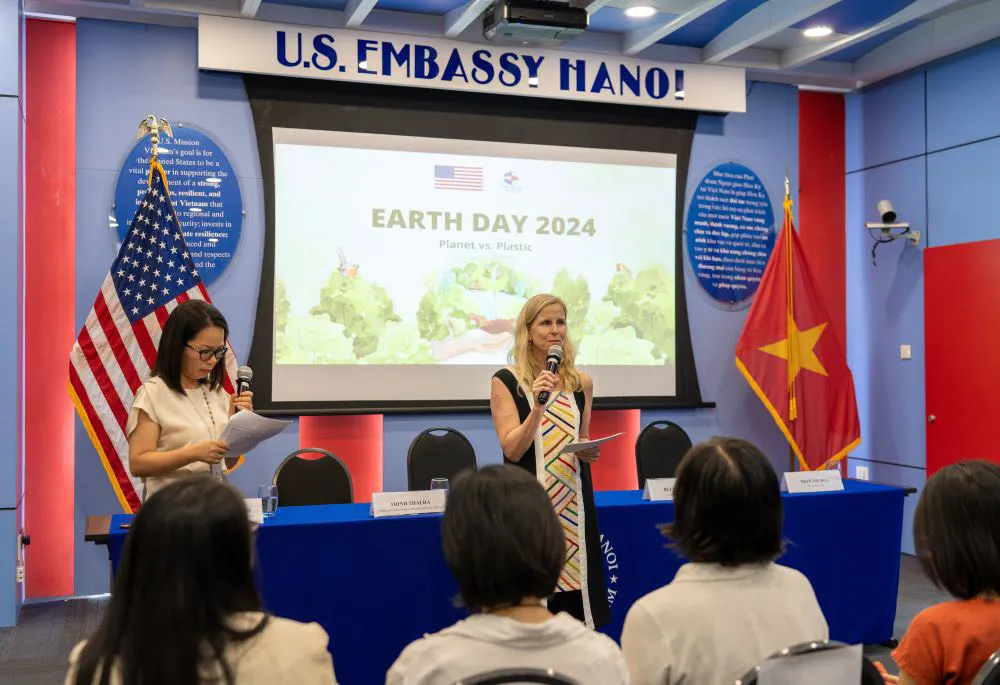
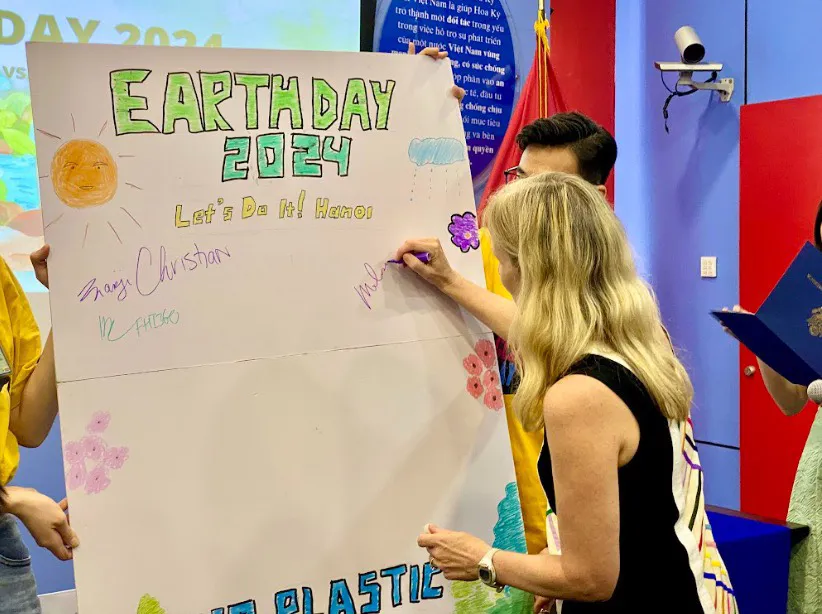
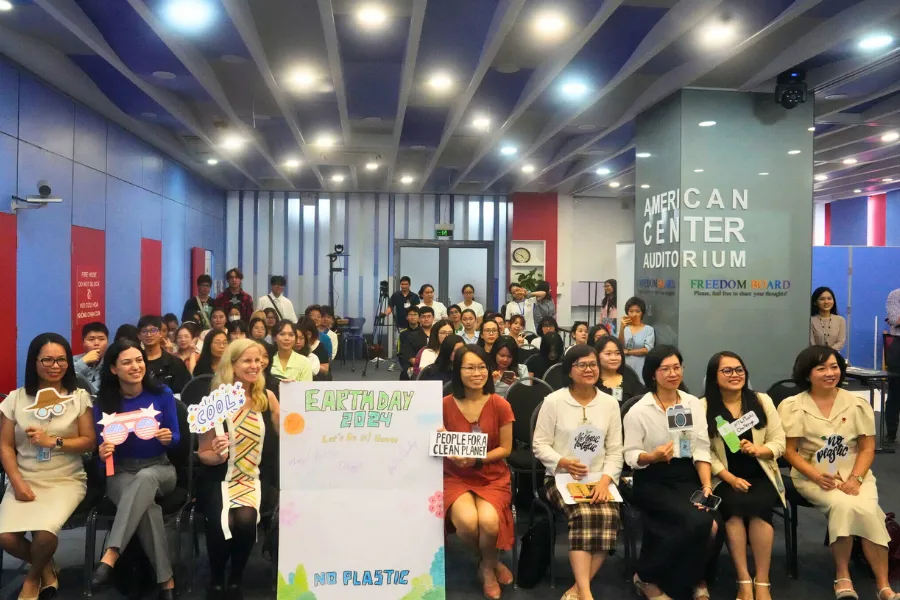
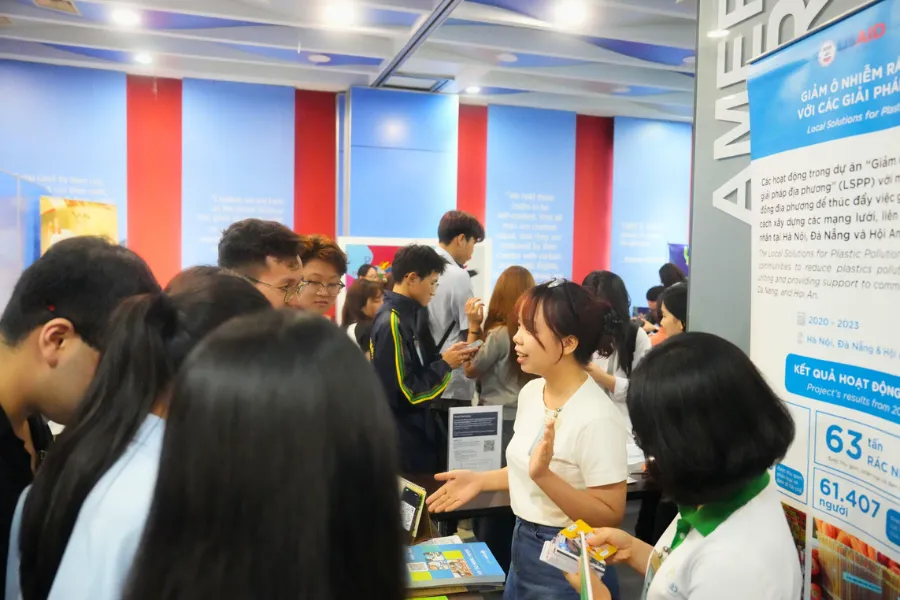
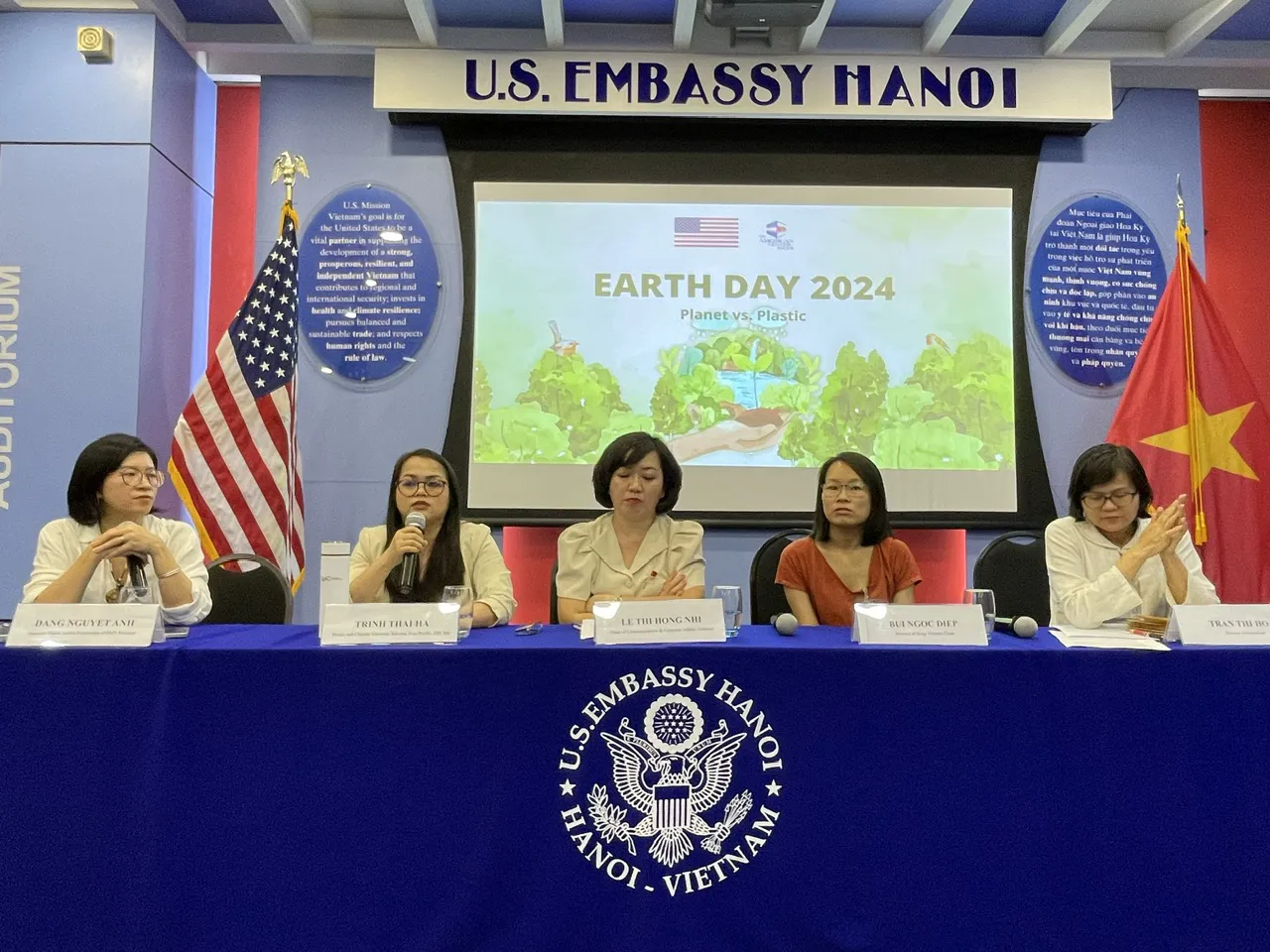
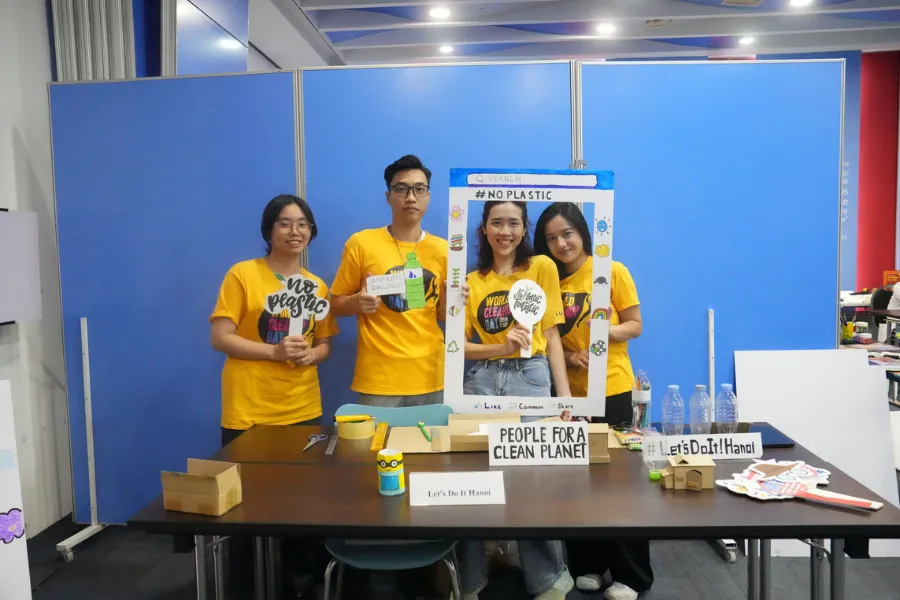
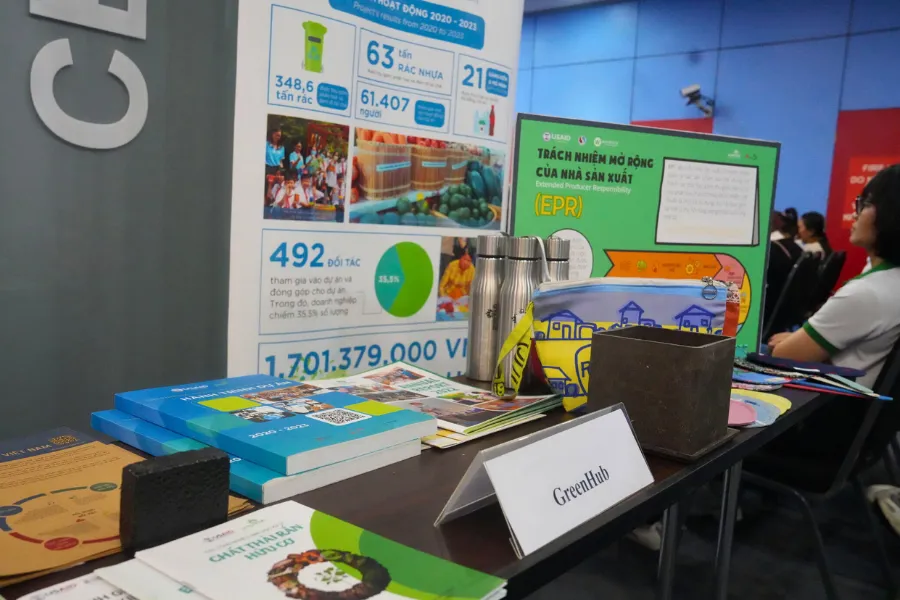
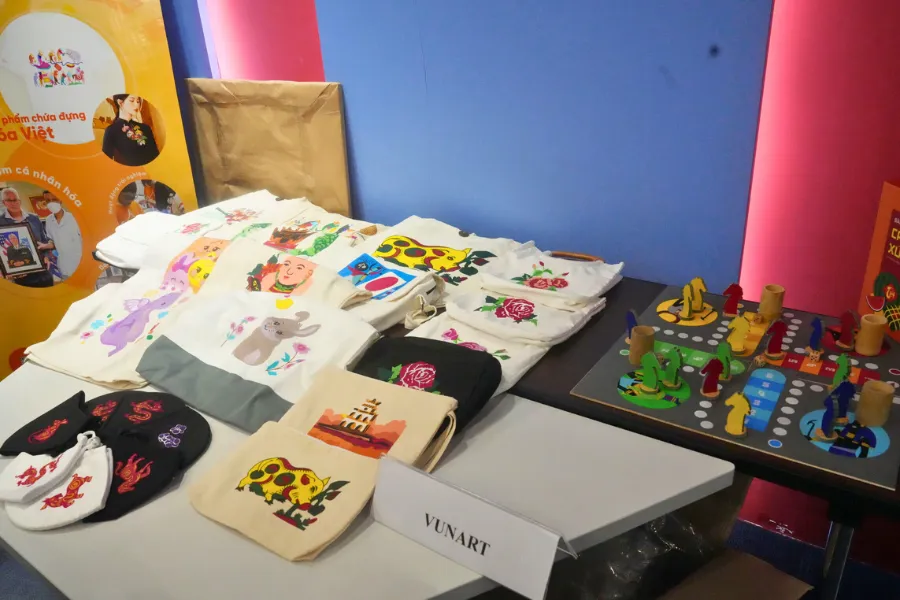
.jpg)







